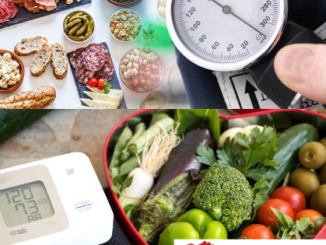
Understanding Collagen and Skin Health
Collagen is like the scaffolding that keeps your skin firm, elastic, and youthful. It’s the most abundant protein in your body, giving structure not just to skin, but also to hair, nails, and connective tissue. When collagen production slows down or breaks down too quickly, your skin starts to sag, fine lines appear, and you lose that plump, fresh look. While collagen loss is a natural part of aging, some people experience it much earlier than expected—a condition known as early collagen loss.
What Causes Early Collagen Loss?
If you’re noticing wrinkles, thinning skin, or loss of firmness in your 20s or 30s, chances are your collagen is depleting faster than normal. But why does this happen?
- Sun exposure (UV damage) – UV rays are the biggest culprit; they destroy collagen fibers and slow new production.
- Poor diet – Excess sugar and processed foods cause glycation, which stiffens and weakens collagen.
- Smoking – Nicotine reduces blood flow and oxygen, accelerating skin aging.
- Stress – High cortisol levels break down collagen more quickly.
- Lack of sleep – Your body repairs and produces collagen while you rest.
- Genetics – Some people are naturally predisposed to losing collagen earlier.
- Pollution and lifestyle – Free radicals from environmental toxins damage skin proteins.
Think of collagen as a rubber band—stretch it too much, expose it to heat or toxins, and it loses elasticity long before it should.
Early Signs of Collagen Loss
Not sure if your skin is losing collagen too soon? Look for these common signs:
- Fine lines around the eyes and mouth
- Loss of volume in cheeks or lips
- Sagging jawline or early jowls
- Thinner, more fragile-looking skin
- Slower wound healing
- Increased dryness and less bounce
If your skin doesn’t “bounce back” after smiling or pinching, it may be time to address collagen loss.
Daily Habits to Protect Collagen
The good news? You can protect and even boost collagen production with small, consistent lifestyle changes:
- Apply sunscreen daily – Broad-spectrum SPF protects collagen from UV breakdown.
- Eat collagen-friendly foods – Lean protein, vitamin C-rich fruits, and leafy greens support collagen synthesis.
- Stay hydrated – Water keeps collagen fibers flexible and skin supple.
- Quit smoking and reduce alcohol – Both accelerate protein breakdown.
- Sleep 7–9 hours nightly – Quality sleep allows your skin to repair and rebuild.
- Exercise regularly – Boosts circulation and delivers nutrients to your skin.
Think of these habits as your skin’s retirement plan—you’re investing now for youthful results later.
Video : Top Tips To BUILD Collagen (And AVOID Thin Aging Skin) | Dr. Tony Youn
Skincare Ingredients That Support Collagen
Your skincare routine can play a powerful role in preserving and boosting collagen. Look for these ingredients when shopping for products:
- Retinol (Vitamin A) – Stimulates collagen production and cell turnover.
- Vitamin C – Essential for collagen synthesis and protection against free radicals.
- Peptides – Short chains of amino acids that signal skin to produce more collagen.
- Niacinamide – Improves elasticity and strengthens the skin barrier.
- Hyaluronic acid – Keeps skin hydrated and plump, reducing the appearance of collagen loss.
- Sunscreens with zinc oxide or titanium dioxide – Physical blockers that protect collagen from UV damage.
These ingredients work like fuel and armor—helping your skin build more collagen while shielding it from further harm.
Professional Treatments for Collagen Restoration
When skincare alone isn’t enough, professional treatments can deliver stronger, faster results:
- Microneedling – Tiny needles trigger collagen production by creating micro-injuries.
- Laser resurfacing – Stimulates deep collagen remodeling while improving texture.
- Radiofrequency therapy – Uses heat energy to tighten skin and rebuild collagen.
- Chemical peels – Exfoliate dead skin and encourage new collagen growth.
- Dermal fillers – Replace lost volume while encouraging natural collagen stimulation.
These treatments should always be done under the guidance of a dermatologist or licensed specialist.
Lifestyle and Nutrition for Long-Term Collagen Health
Collagen support isn’t just about what you put on your skin—it’s also about what you put into your body:
- Protein-rich foods – Eggs, chicken, fish, and legumes supply amino acids for collagen building.
- Vitamin C – Found in oranges, strawberries, and bell peppers, crucial for collagen formation.
- Zinc and copper – Minerals that help activate collagen production.
- Bone broth and collagen supplements – Provide collagen peptides your body can use directly.
- Antioxidants – Found in green tea, blueberries, and spinach, they fight free radicals that damage collagen.
Think of your diet as the raw material your skin needs to rebuild its structure—without it, your foundation weakens.
Video : The #1 Collagen Tip for Amazing Hair, Nails, & Skin
Conclusion
Early collagen loss can leave your skin looking older than your years, but it’s not irreversible. By protecting yourself from UV rays, adopting healthy habits, and using collagen-boosting skincare, you can slow down or even reverse the process. For more advanced cases, professional treatments and nutritional support can restore firmness and elasticity. The key is consistency—start now, and your future self will thank you for the youthful, glowing skin you preserved.


